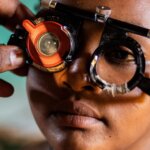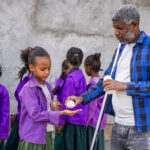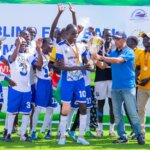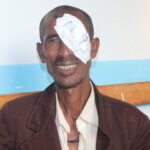- Eye Health
- General
This World Sight Day, on 9 October 2025, we shine a spotlight on four pioneering paediatric ophthalmologists in Burkina Faso, Ethiopia, Mozambique and Uganda.
In Ethiopia, Dr Abebe is the only paediatric ophthalmologist serving a catchment area of more than 30 million people. Despite the challenges, he sees a clear path to improve child eye health in the country.
About 150 children every week pass through the ophthalmology department at University of Gondar Comprehensive Specialized Hospital. Dr Abebe, who heads the department, treats them all.
“I treat lots of kids every week,” Dr Abebe says.
“I perform around 15 major paediatric and strabismus (a condition in which both eyes do not look at the same place at the same time) eye surgeries per week.”
From conjunctivitis and cataracts to strabismus, refractive errors and eye tumours, his patients arrive with conditions ranging from common to complex.
Dr Abebe cannot treat all cases. But for those children whose sight can be saved or restored, the results are transformative.
“I can give children — who are almost blind from cataracts, strabismus and trauma — their sight,” he says.
“Watching them enjoy life after the surgery is the best gift that I can get.”
Driven to save sight
Growing up, Dr Abebe wanted to be a journalist, but a fascination with human biology led him to medicine.
“I chose ophthalmology because of the fact that ophthalmology includes both the medical and surgical field, which is a perfect fit for my brain and hands,” he says.
Seeing blind people in the street deepened his motivation.
“I was always asking myself why they became blind. I started to like the idea that I could help those people and stop them from going blind,” he says.
During his internship, Dr Abebe encountered many patients suffering eye problems but struggling to access proper care. Children with retinoblastoma (a rare childhood eye cancer) and strabismus were returning home untreated, because local hospitals lacked the skills or resources and families could not afford specialist centres.
The experience set the course for his future career: paediatric ophthalmology.
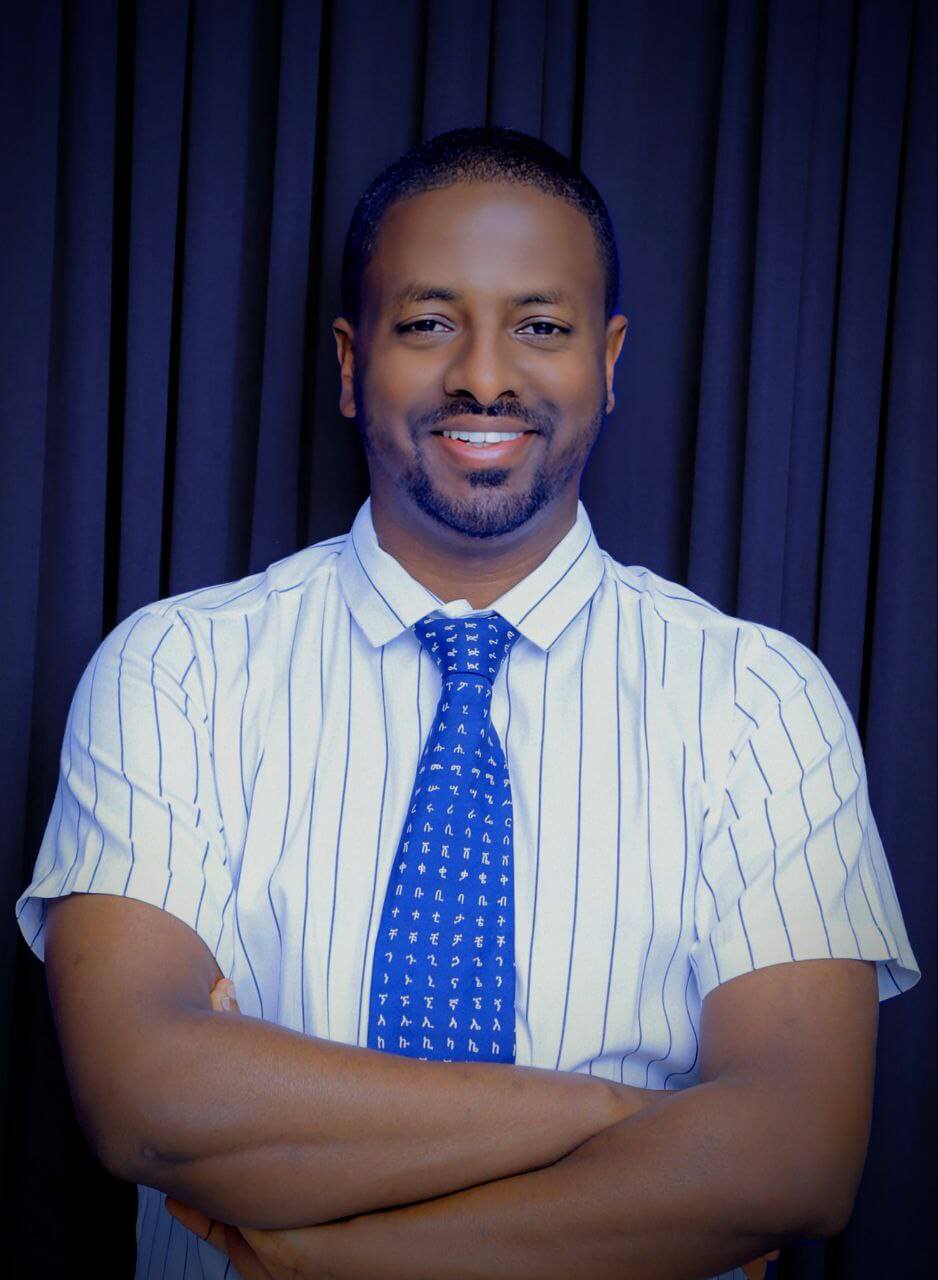
Building child eye health expertise in Ethiopia
Dr Abebe studied ophthalmology at the University of Gondar before completing paediatric and neuro-ophthalmology subspecialties at the prestigious LV Prasad Eye Institute in India in 2023.
Light for the World sponsored Dr Abebe’s specialist training under the ”1, 2, 3 I Can See! programme”. The 10-year programme promotes school eye health and reinforces healthcare systems to improve child eye health in Burkina Faso, Ethiopia, Mozambique and Uganda.
Rather than relying on short-term visits from foreign doctors, the programme invests in training local doctors and teachers, strengthening health systems and building sustainable solutions.
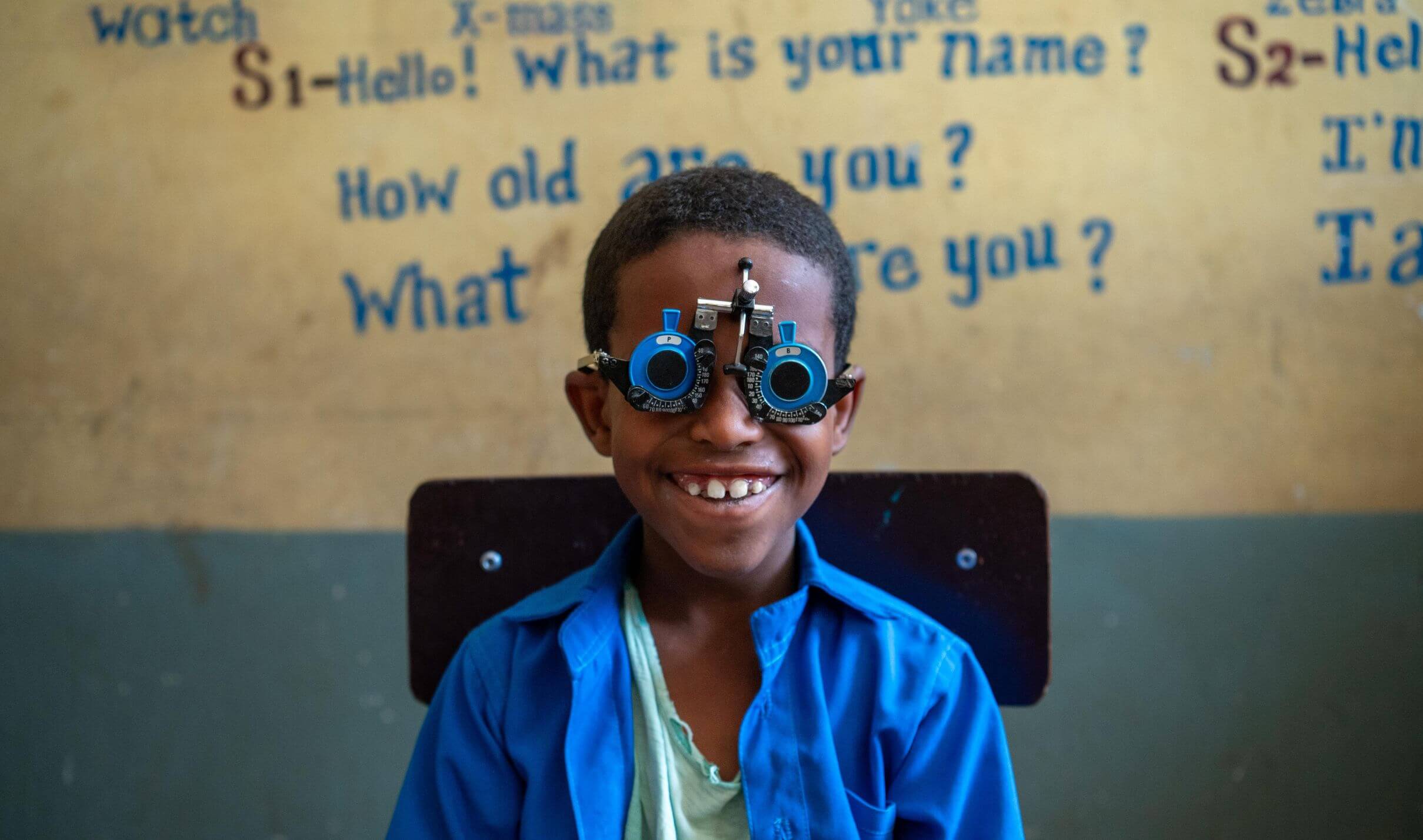
“I wanted to study ophthalmology because during my internship I saw so many patients suffering from eye problems and having difficulty to get proper ophthalmic care,” Dr Abebe says.
“I chose paediatric ophthalmology because patients were returning home without any treatment. We did not have the skills or resources to treat them.”
Transforming lives through early intervention
Globally, 40% of children are blind from eye conditions that could be managed or prevented with access to eye care services, according to the International Agency for the Prevention of Blindness.
In Ethiopia, the ”1, 2, 3 I Can See! programme” supported the distribution of nearly 2,000 pairs of glasses for children in Ethiopia from 2021 until the end of 2024. More than 150,000 children have had their eyes tested at school and more than 1,500 received surgery.
Nearly 750 eye health professionals, teachers and community workers have also been trained.
Dr Abebe sees firsthand the difference this makes.
A case that stays with him involves two patients, aged five and nine, who both had bilateral developmental cataracts.
“They had been unable to start school because of the problems with their vision,” he says.
“But after surgery they were both able to attend school and have a happy childhood.”
A clear vision for the future
Despite progress, many obstacles remain.
Funding for eye health globally averages less than 0.06% of all health funding. In Ethiopia, there is a lack of child-friendly operating theatres, essential equipment and affordable glasses.
“The main challenge in paediatric eye care in Ethiopia is a lack of child-friendly infrastructure for both the outpatient department and operating theatre,” Dr Abebe says.
“Operating theatres should have at least a proper operating microscope, vitrectomy machine (used for child cataract surgery) and proper surgical instruments as a minimum requirement.
“The other limitation is a lack of paediatric optometrists and nurses, and the unavailability of proper operating tools for performing good quality surgeries.
“Lastly, there is a scarcity of quality high-index eyeglasses for children, which makes treating simple refractive errors very difficult.”
There is a strong case for investing in child eye health. The Value of Vision report published by IAPB, Seva Foundation and Fred Hollows Foundation, and supported by Light for the World, found eye health was one of the most powerful global health opportunities for low and middle-income countries. For every US$1 invested, there is a US$28 return.
Targeted investment in eye health interventions like cataract surgeries and reading glasses would return US$447 billion annually to the global economy.
For Dr Abebe, the priorities are clear. More funding would be used for early interventions and training the next generation of eye health specialists — crucial steps to improving the eyesight of children in Ethiopia.
“The first priority is making good infrastructure for paediatric patients and surgical eye care,” he says.
“And the second is providing consistent and timely training for paediatric ophthalmologists, optometrists and nurses.
“Being able to intervene early enough in cases to prevent vision loss or blindness — that will always motivate me.”
